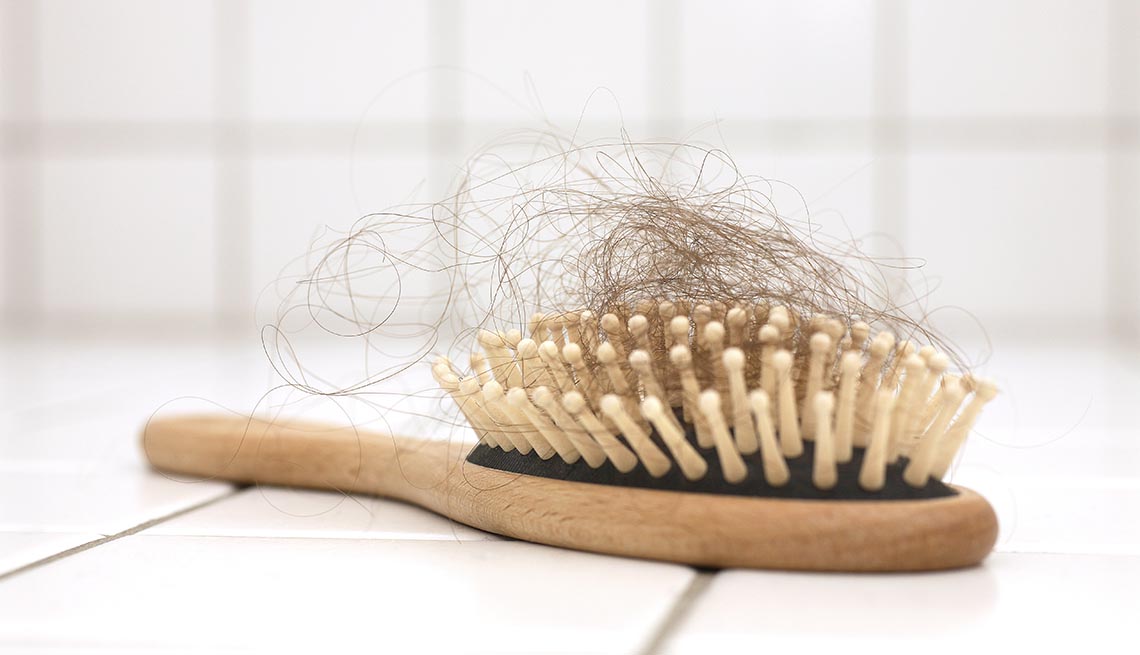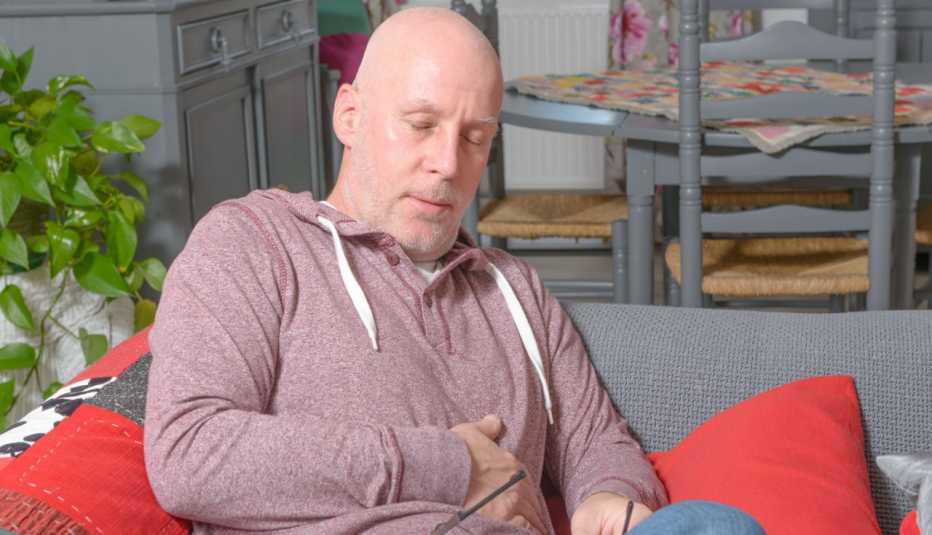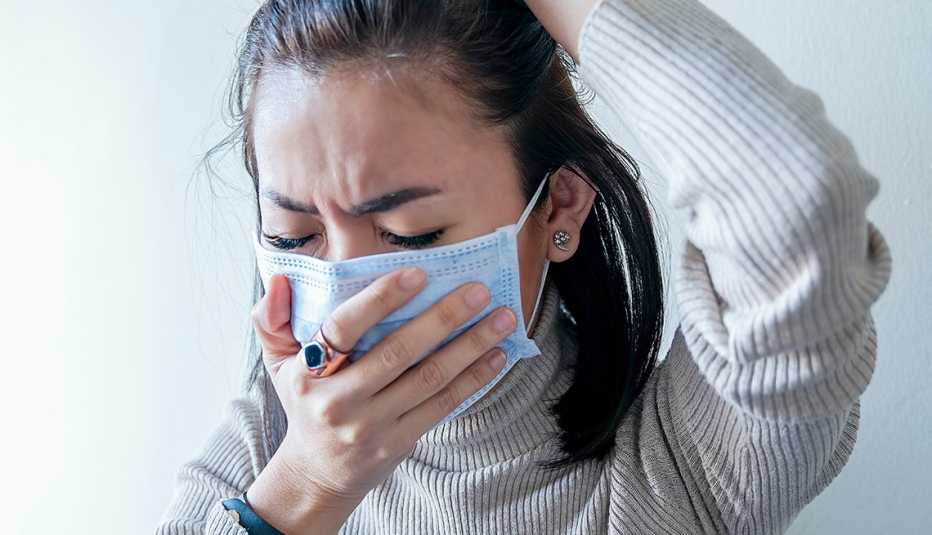Staying Fit
About three months after she recovered from COVID-19, Beckie Bean-Cummings’ hair started falling out in clumps.
"It's crazy,” said Bean-Cummings, 61, of Galesburg, Illinois. “I'll be in the shower and it comes out by the handful. I've probably lost about 30 percent of my hair since the middle of December.”
Hair loss, it turns out, is yet another consequence of coronavirus infection — one that typically shows up two to four months later.


AARP Membership— $12 for your first year when you sign up for Automatic Renewal
Get instant access to members-only products and hundreds of discounts, a free second membership, and a subscription to AARP the Magazine.
Among members of Survivor Corps, an online support group for COVID-19 survivors, about a third (32 percent) say they've had hair loss, said Natalie Lambert, an associate research professor in biostatistics at the Indiana University School of Medicine in Indianapolis who conducts surveys of the group. A study published in The Lancet found that more than 1 in 5 hospitalized COVID-19 patients (22 percent) were still losing hair six months after discharge.
Hair shedding common after major health event
Hair loss after COVID-19 probably isn't caused by the virus attacking hair follicles, doctors say. Instead, they think it's most likely a reaction to the physiological and emotional stress brought on by the disease.
"Anytime you have a shock to your system, it can shunt the hair into a shedding phase,” said Shoshana Marmon, M.D., clinical assistant professor of dermatology and director of clinical research in the Department of Dermatology at New York Medical College.
The technical name for the condition is telogen effluvium. It usually resolves on its own about six to nine months after it starts, Marmon said.
Lauren Ploch, M.D., a board-certified dermatologist in Augusta, Georgia, and Aiken, South Carolina, said hair loss is common in patients after other stressful events such as major surgery and childbirth. As with COVID, it usually shows up a few months after the inciting event.
"The reason this happens is that our bodies, when under stress, devote resources to functions that are physiologically more important,” Ploch said. “Your body is focused on healing and repairing itself, and not focused on hair growth.”
In the most severe cases, patients lose as much as a third of their hair, Ploch said.
Dermatologists are tracking COVID-19 survivors who continue to have symptoms, called long-haulers, to find out for sure if what they are experiencing is telogen effluvium or something related to ongoing illness or inflammation.
Lambert said some Survivor Corps members report that their hair loss resolved on its own, while others required treatment.



































































